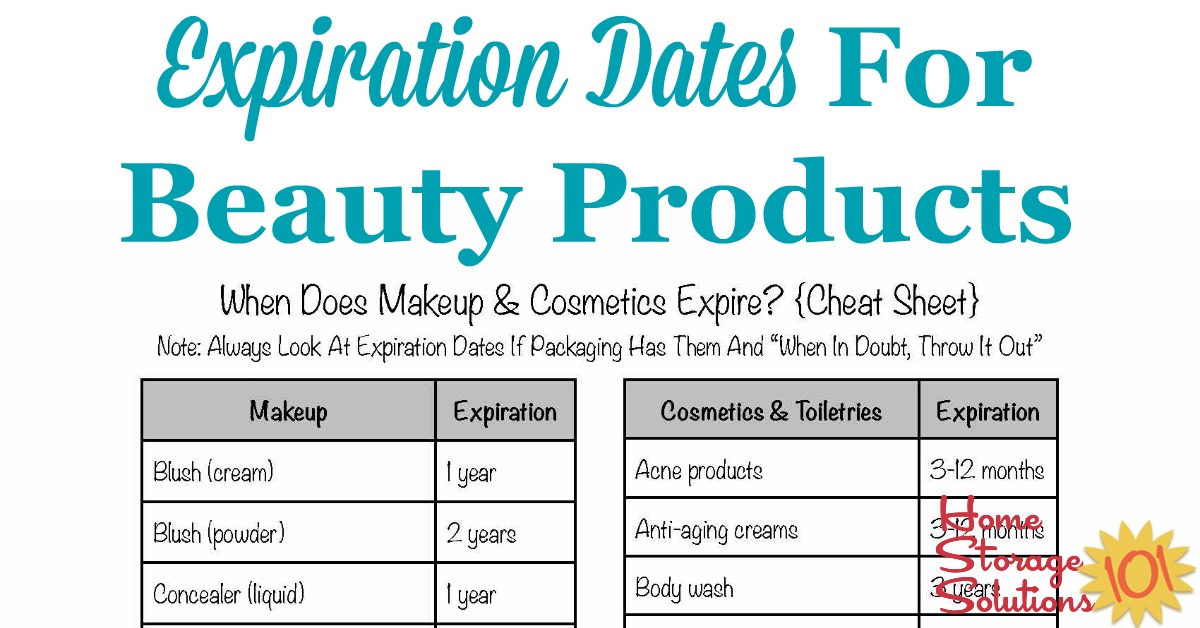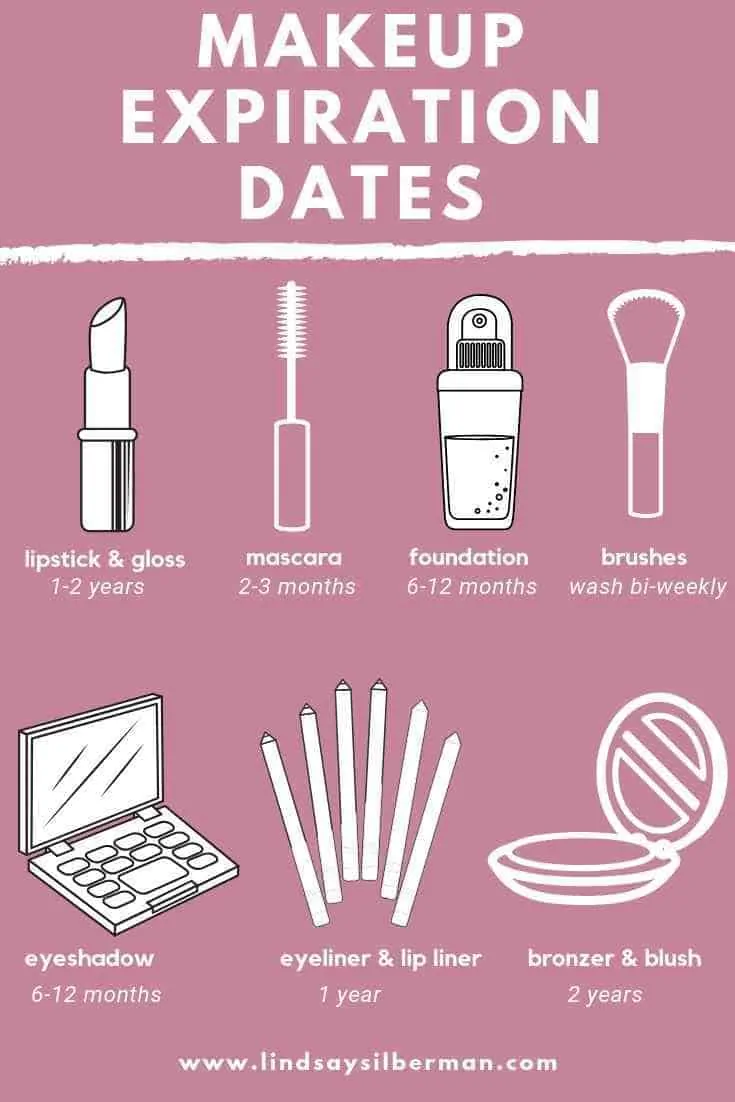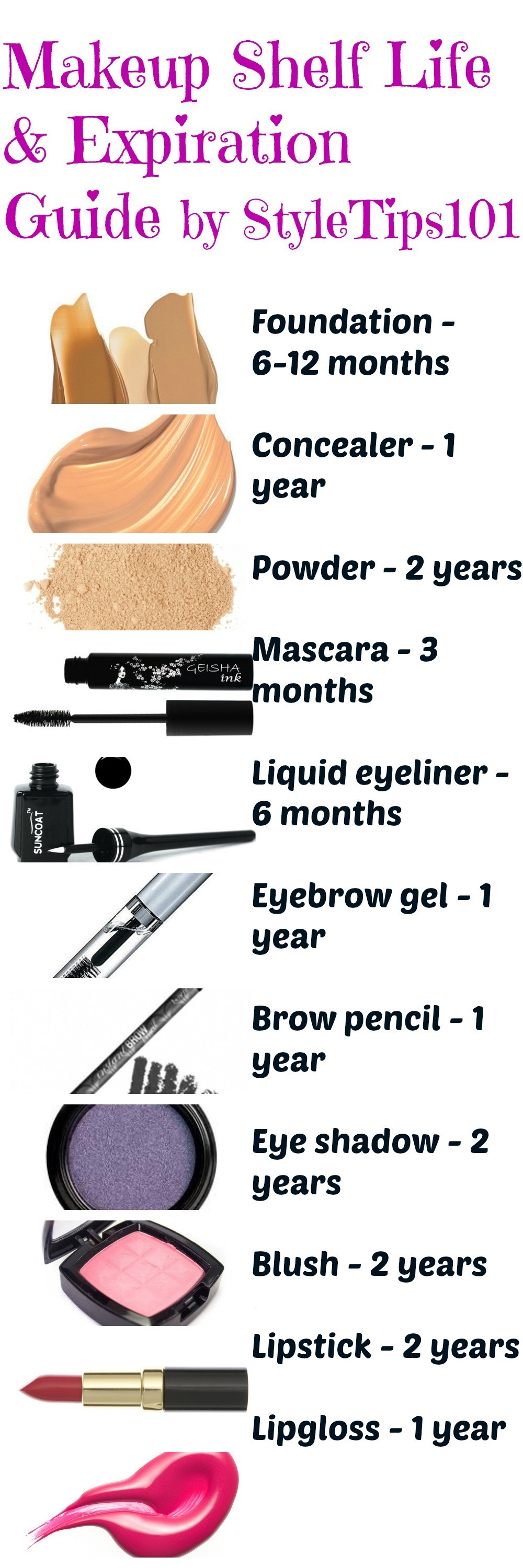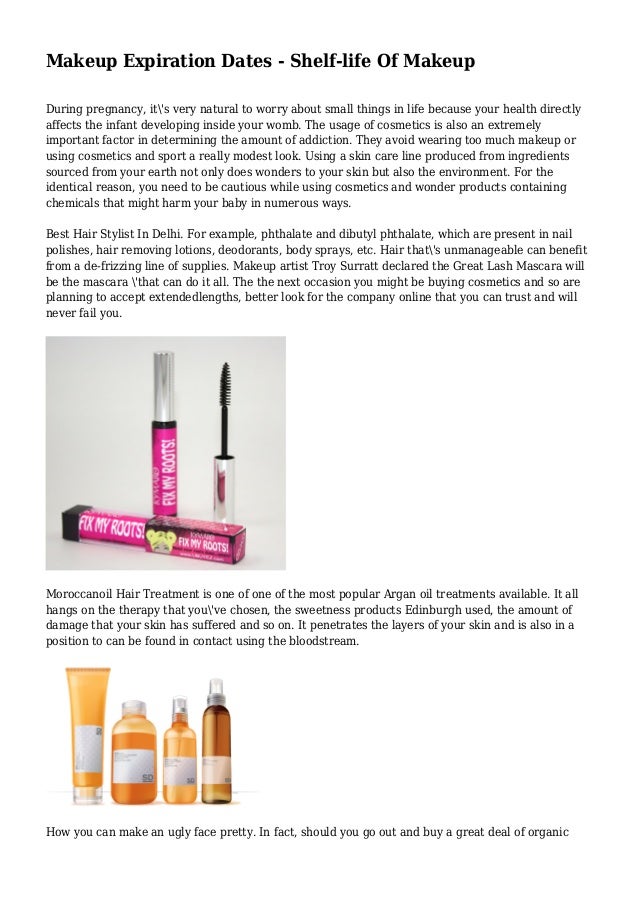The Silent Shelf Life: Understanding Makeup Expiry Dates
Related Articles: The Silent Shelf Life: Understanding Makeup Expiry Dates
Introduction
In this auspicious occasion, we are delighted to delve into the intriguing topic related to The Silent Shelf Life: Understanding Makeup Expiry Dates. Let’s weave interesting information and offer fresh perspectives to the readers.
Table of Content
The Silent Shelf Life: Understanding Makeup Expiry Dates
:max_bytes(150000):strip_icc()/makeup-expiration-dates-1-1-02e81c0678f34ca59f5e0f5bfee87232.jpg)
Makeup, a beloved companion in the pursuit of beauty and self-expression, is often treated as a constant companion. However, like all products, makeup possesses a finite lifespan, dictated by its formulation and the passage of time. Understanding the concept of makeup expiry is crucial for safeguarding both your skin’s health and the integrity of your beloved beauty arsenal.
The Science Behind Makeup Expiry
The expiration of makeup is a complex process driven by a combination of factors, including:
- Oxidation: Exposure to air, light, and heat can cause the ingredients in makeup to oxidize, leading to changes in color, texture, and scent. This oxidation process can render the product ineffective or even detrimental to the skin.
- Bacterial Contamination: Makeup, especially products applied directly to the eyes or lips, can become contaminated with bacteria over time. This contamination arises from the transfer of microorganisms from fingers, brushes, or the environment.
- Ingredient Degradation: Over time, the ingredients in makeup can break down, leading to a change in their chemical composition. This degradation can affect the product’s efficacy and potentially create irritants or allergens.
Identifying Makeup Expiry
While most makeup products do not explicitly display expiry dates, there are several indicators that suggest a product is nearing its end:
- Changes in Texture: If a product becomes clumpy, watery, or separates, it is likely nearing its expiration.
- Changes in Color: A shift in color, particularly in liquid or cream products, indicates a breakdown of ingredients and potential contamination.
- Changes in Smell: A change in scent, especially a musty or rancid odor, signals oxidation or bacterial growth.
- Changes in Appearance: If a product develops mold or a visible film, it should be discarded immediately.
The Importance of Observing Makeup Expiry
Using expired makeup can lead to several adverse consequences, including:
- Skin Irritations and Breakouts: Expired makeup can harbor bacteria and contain degraded ingredients that can irritate the skin, leading to breakouts, redness, and inflammation.
- Eye Infections: Using expired eye makeup, such as mascara or eyeliner, can increase the risk of developing conjunctivitis or other eye infections.
- Allergic Reactions: Expired makeup can trigger allergic reactions, especially in individuals with sensitive skin.
- Ineffectiveness: Expired makeup may no longer deliver its intended results, leading to wasted products and a diminished beauty routine.
Tips for Prolonging Makeup Lifespan
While every product has a finite lifespan, there are several measures you can take to extend the life of your makeup:
- Store Properly: Store makeup in a cool, dry place, away from direct sunlight and heat. Avoid storing makeup in humid environments or bathrooms, as this can promote bacterial growth.
- Clean Tools Regularly: Clean makeup brushes, sponges, and applicators regularly with a gentle cleanser to prevent the buildup of bacteria and product residue.
- Minimize Contamination: Avoid touching makeup with bare fingers. Use clean applicators and close containers tightly after use.
- Replace Regularly: Even with proper storage and hygiene, it is advisable to replace makeup every 6-12 months, or sooner if you notice any signs of deterioration.
Frequently Asked Questions about Makeup Expiry
1. What is the average lifespan of makeup?
The average lifespan of makeup varies depending on the product type and formulation. Generally, liquid and cream products have a shorter shelf life than powder products. Most makeup products have a lifespan of 6-12 months, but some products, like mascara, should be replaced every 3 months.
2. Does makeup expire even if it’s unopened?
Yes, even unopened makeup can expire. The ingredients in makeup can break down over time, even when sealed in their original packaging.
3. How can I tell if my makeup is expired?
Look for changes in texture, color, smell, and appearance. If you notice any signs of deterioration, discard the product.
4. Is it safe to use expired makeup on my eyes?
No, it is not safe to use expired makeup on your eyes. Expired eye makeup can harbor bacteria and increase the risk of eye infections.
5. Can I use expired makeup on my skin?
While it may not be as risky as using expired eye makeup, using expired makeup on your skin can still lead to irritation, breakouts, and allergic reactions. It is best to err on the side of caution and replace expired products.
6. Can I extend the lifespan of my makeup by storing it in the refrigerator?
While refrigeration can help preserve some products, it is not recommended for all makeup. Some products, like liquid foundations and creams, can become too thick or separate in the refrigerator. It is best to consult the product’s instructions or a beauty professional for specific storage recommendations.
Conclusion
Understanding the concept of makeup expiry is paramount to maintaining healthy skin and enjoying the benefits of your beauty routine. By observing expiry dates, adopting proper storage practices, and replacing products regularly, you can ensure that your makeup remains safe, effective, and continues to enhance your natural beauty. Remember, a little awareness goes a long way in ensuring the longevity and safety of your beloved beauty essentials.




:max_bytes(150000):strip_icc()/makeup-expiration-dates-mascara-foundation-lipstick_final3-65a7101779cf40208954ba478bfd456a.png)



Closure
Thus, we hope this article has provided valuable insights into The Silent Shelf Life: Understanding Makeup Expiry Dates. We thank you for taking the time to read this article. See you in our next article!